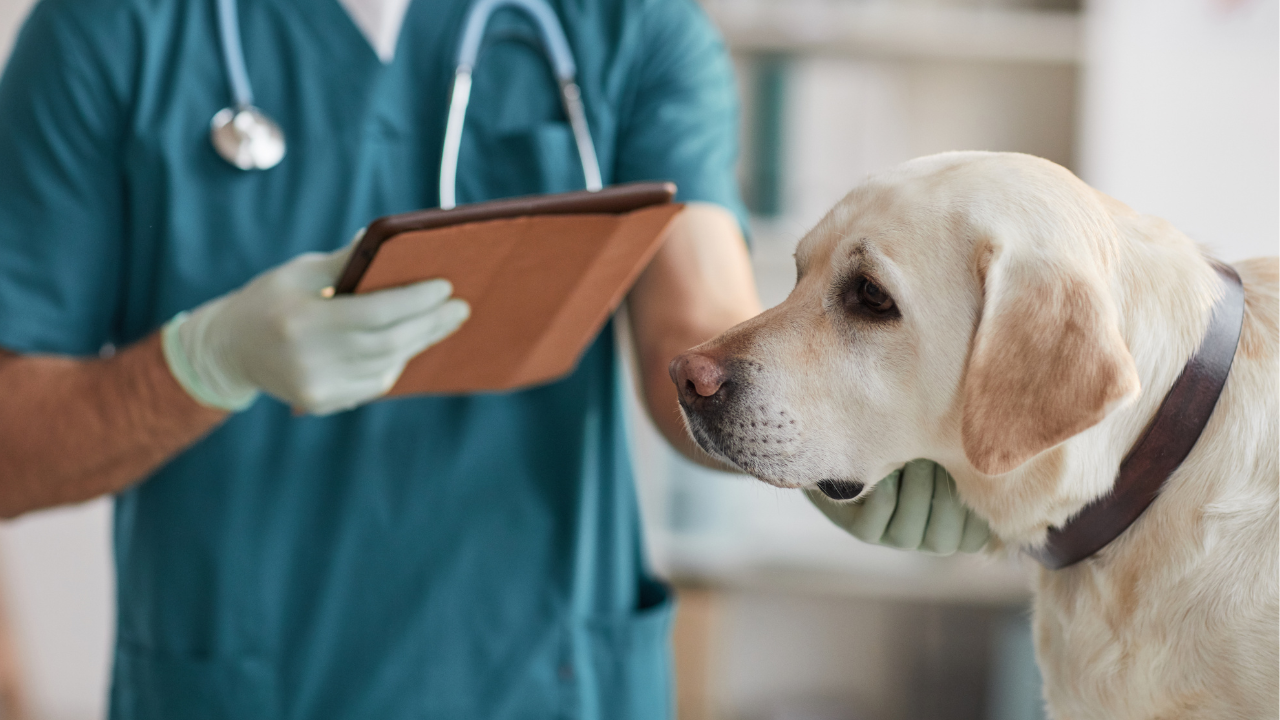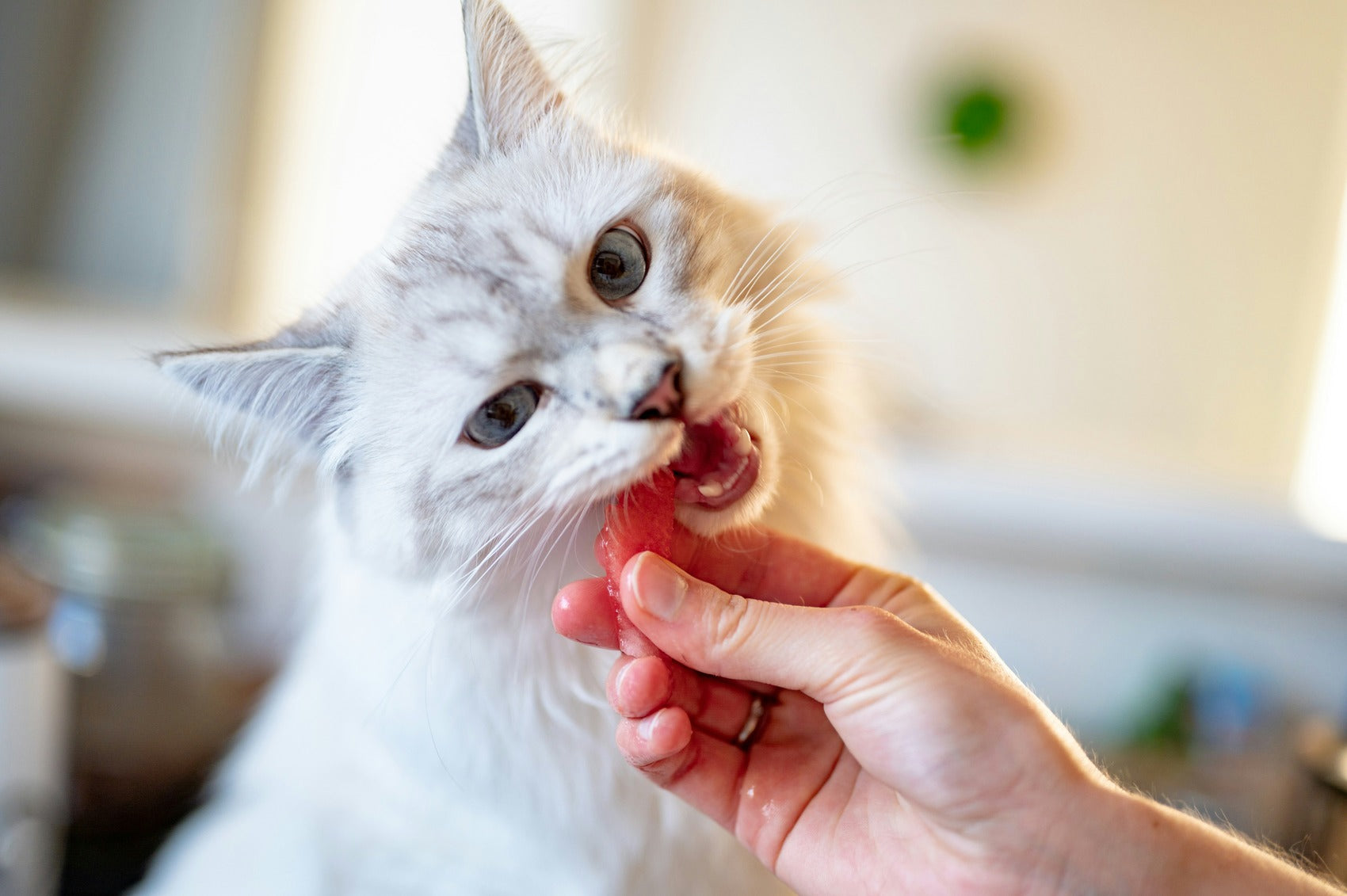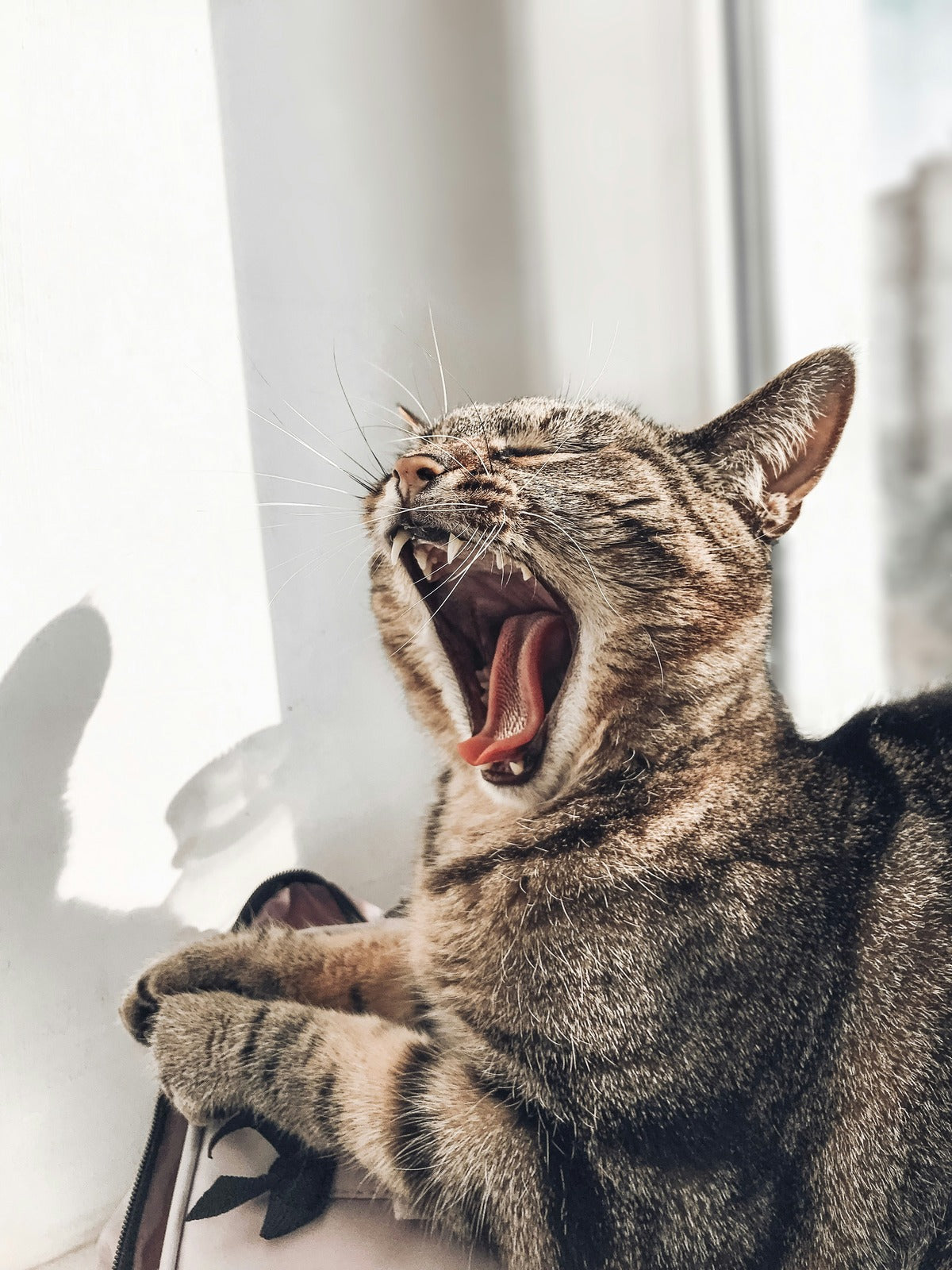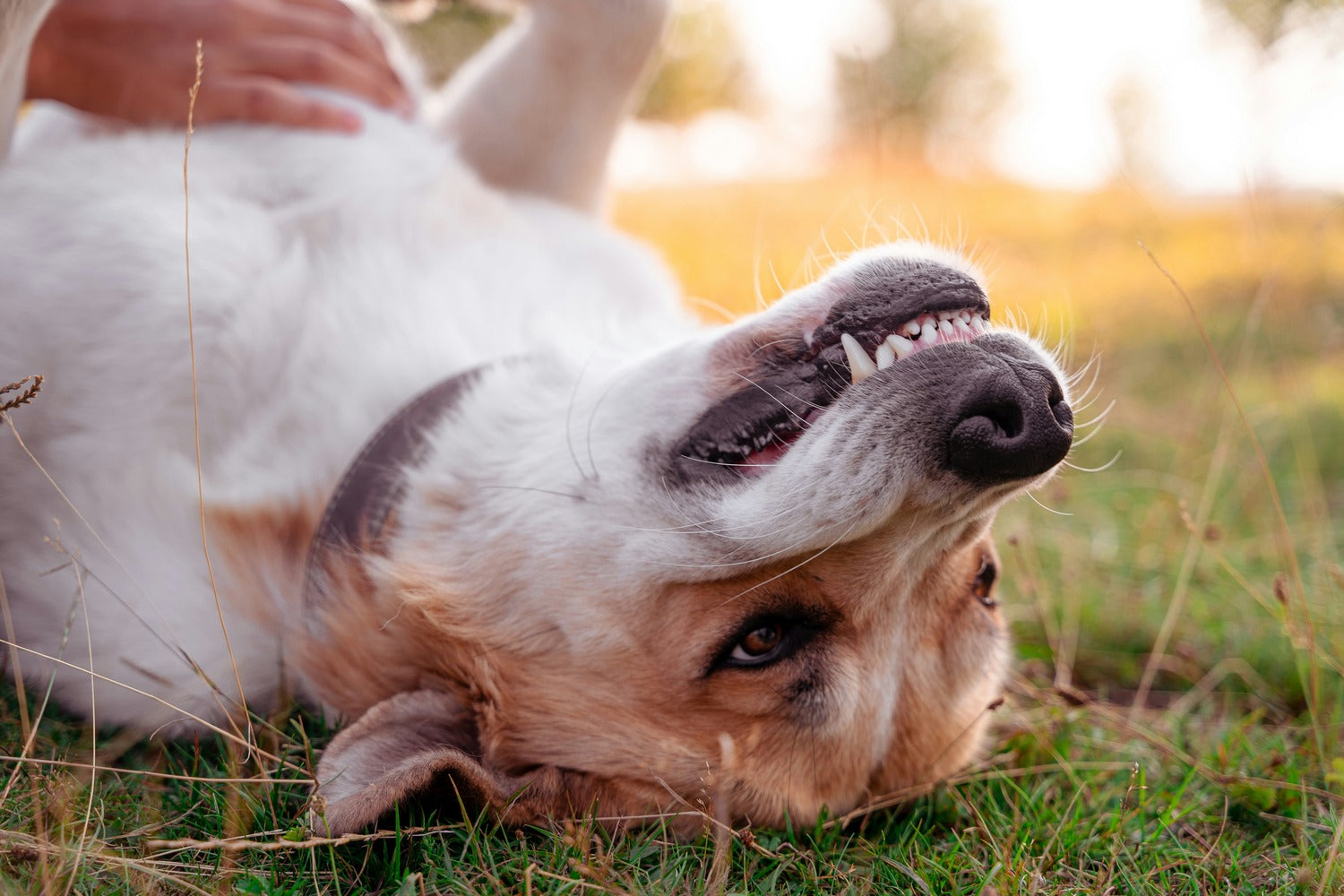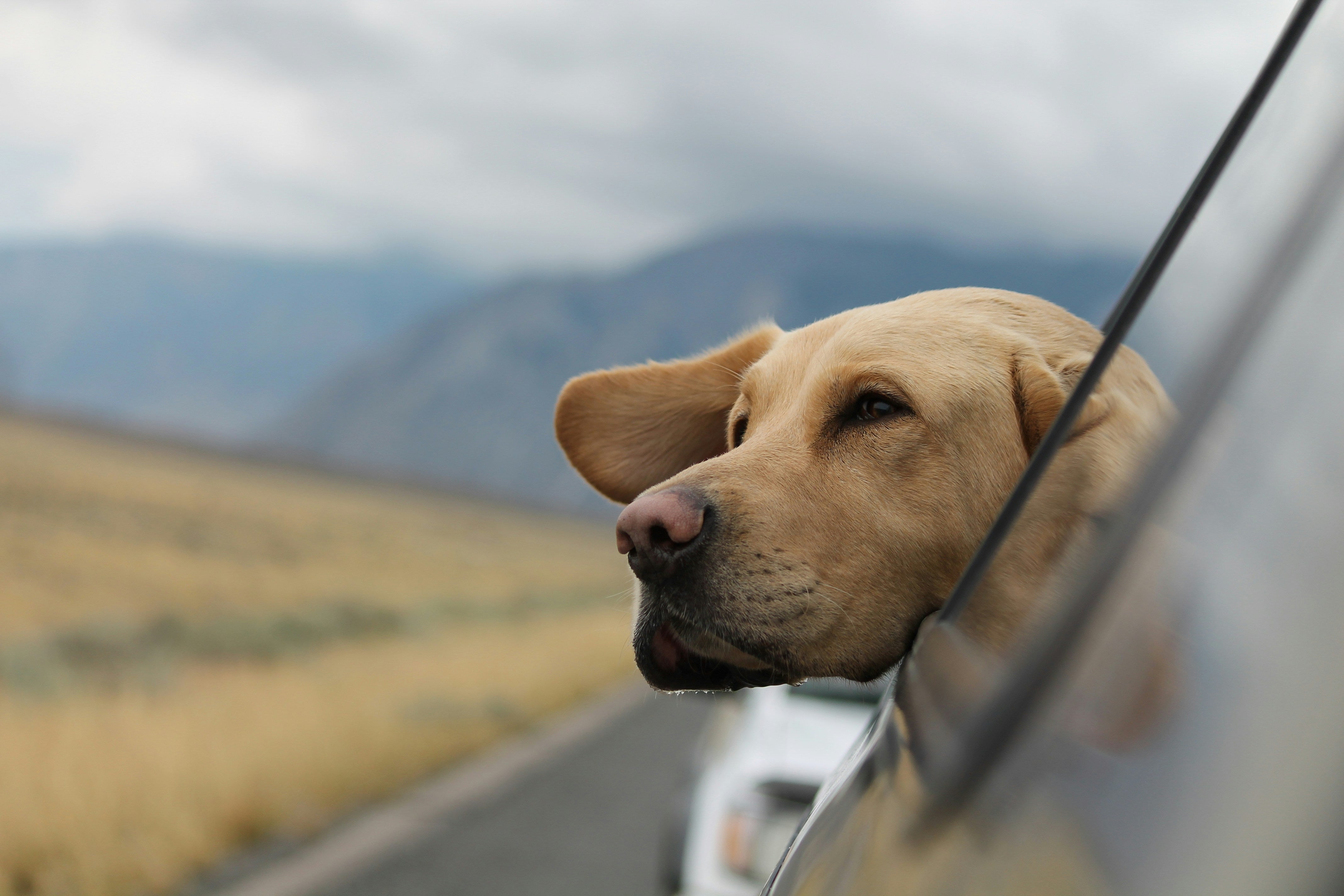4 Common Health Concerns for Large Breed Dogs
Discover the secret to protecting your large breed dog's health! Unveil the top health concerns they face and learn crucial early-warning signs. Empower yourself with knowledge to provide the care they need for a more vibrant, longer life. Dive in and be their best advocate!
Did you know that large breed dogs are more likely to develop certain health conditions? Large breed dogs also have shorter life expectancies compared to medium sized dogs.
The size and rate that large breed dogs grow make them susceptible to health conditions and shorter life expectancies.
Knowing about these potential health problems can help you catch early warning signs and get your beloved dog the help they need.
Let’s take a look at the most common health concerns in large breed dogs.

- Hip Dysplasia
Hip dysplasia is the abnormal development and growth of a dog’s hip joints. It can eventually cause lameness and arthritis in joints. Hip dysplasia can show up in large breed dogs as young as 4 months old. It can also be something that develops over time and comes with age. Some signs of hip dysplasia are:
- Loss of leg muscle mass
- Pain and stiffness
- A decreased range of motion
- Reluctancy to get up, run, climb, or jump
- Cracking and popping sounds from joints
- Bunny hopping when running
Hip dysplasia is believed to be a primarily genetic disease and dogs whose parents have the disease are most likely to experience it themselves. There are several breeds of dogs that are also more likely to develop this disease:
- Labrador and Golden Retriever
- Saint Bernard
- Great Dane
- German Shepherd
- Rottweiler
Early diagnosis and treatment can decrease the long-term symptoms caused by the disease. While some dogs will require surgical intervention, diet and supplementation can help manage the condition. Feeding your large breed dog, a high-quality food and keeping unwanted extra weight off can protect their joints. Starting your puppy on a preventative hip and joint supplement can be crucial in preventing symptoms from ever occurring. Watch for ingredients like turmeric, glucosamine, and chondroitin. Always look for the NASC quality seal and a supplement that contains no artificial colors, dyes, or harmful preservatives.

- Dilated Cardiomyopathy
Dilated cardiomyopathy, or DCM, is an acquired disease. Onset begins in middle to senior age and is also unique to large and giant breed dogs. DCM is when the heart muscle no longer contracts the way that it should. When the heart must work harder to pump blood it takes a toll on the muscle itself. In DCM in dogs the walls of the ventricle muscle begin to thin and the heart begins to enlarge.
Symptoms of dilated cardiomyopathy in dogs include:
- Reduced stamina
- Excessive panting after activity
- Tiring quickly
When the disease progresses dogs can experience:
- Loss of appetite
- Fainting and collapsing
- Labored breathing
- Inability to rest or sleep
If you are concerned about your dog’s heart, early diagnosis of DCM the better the outcome. Unfortunately, DCM is not reversible, but there are some things you can do to manage. Your veterinarian can run tests to determine a diagnosis. You may be referred to a veterinary cardiologist. There are several drugs used to treat DCM but there are no guarantees. Some dogs do well with treatment for a period of time; however, some dogs will never return to a normal lifestyle. DCM is a serious disease, and must be accurately diagnosed and aggressively treated.

- Bloat or Gastric Torsion
Bloat, or GDC, occurs when a dog’s stomach fills with gas, food, or fluid and then stretches, twists, and rotates. This condition can be life threatening and prevents blood from reaching the stomach and other parents of the body and can cause tears in the walls of the stomach. If you suspect your dog may be experiencing GDC IMMEDIATE veterinarian treatment is required.
Signs of bloat include:
- Enlarging of the abdomen
- Dogs will feel pain and may whine when you press on their abdomen
- Salivation
- Restlessness
In only a few short hours your dog will go into shock. Your veterinarian will start by treating the shock. When your dog is stable, they will be taken in for surgery. Veterinarians can do two different procedures. One procedure is to get the air out of the stomach and turn it back to its correct placement. Because 90% of dogs who have this happen will have it happen again the second procedure done involves tacking the stomach to the abdominal wall to prevent future twistings.
Dogs with deep and narrow chests or that are very tall are most likely to suffer from bloat. Males are also twice as likely to bloat as females. Large breeds most susceptible to bloat are:
- Great Danes
- Doberman Pinscher
- Weimaraner
- Saint Bernard
If a dog’s relatives have suffered from bloat there is a higher risk of that dog developing bloat themselves. While certain dietary ingredients have been blamed over the years the data is inconclusive. Dogs fed one meal a day compared to two are twice as likely to bloat. Fast eaters have five times the risk of slow eaters. If you have a fast eater, consider purchasing a slow feeder to help slow them down.

- Eyelid condition Entropion and Ectropion
Entropion occurs when the eyelids roll inwards and Ectropion occurs when the eyelids roll outwards. Both conditions cause dogs pain and irritation.
Signs your dog could have one of these conditions are:
- Squinting
- Holding their eye shut
- Excessive tears
- Mucoid discharge
In many cases both eyes are affected. It can usually be diagnosed in puppies under one year of age. Breeds that are most susceptible to eyelid conditions are:
- Mastiff
- Newfoundland
- Old English Sheep Dog
- Great Dane
- Great Pyrenees
While several surgeries may be required many dogs will enjoy pain free normal lives. Talk to your veterinarian about diagnostics and treatment plans.
Upgrade Your Pet’s Health the Natural Way
Discover the secrets to your pet's optimal health with Dr. Michelle Dulake's proven methods! Unleash the full potential of their well-being and share in their vibrant life. Don't wait – improve your pet's vitality and longevity today with expert guidance from the trusted veterinarian!
At Fera Pet Organics, we’re committed to using only the most natural high-quality ingredients to keep your furry family members healthy and happy for as long as possible.
We’d love to hear from you! What do you want to learn about next? Do you have any comments or questions? Reach us at hello@ferapets.com!
